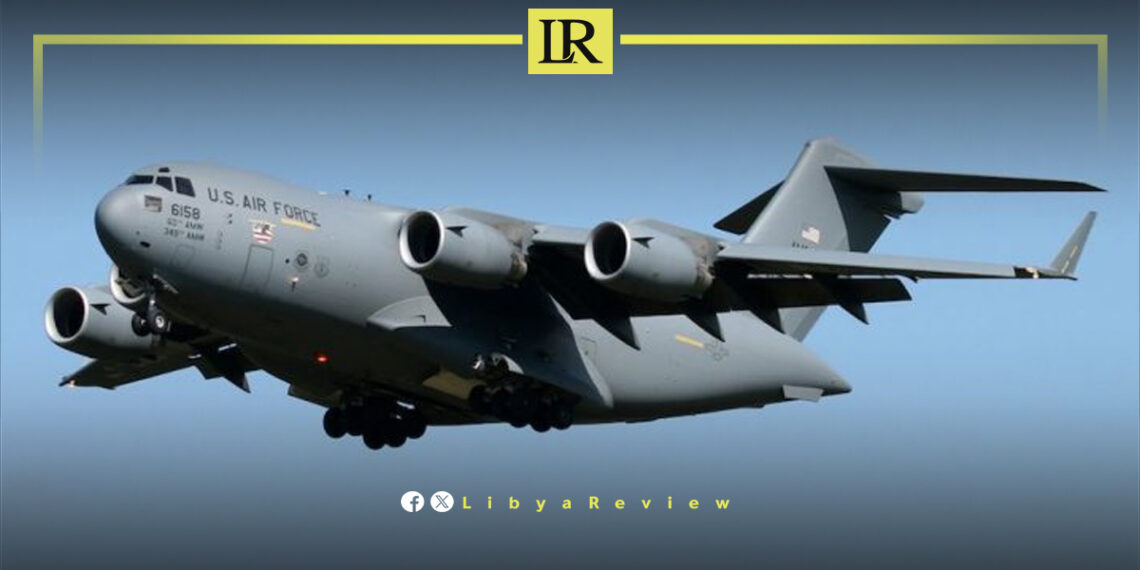A U.S. military cargo aircraft, identified as a Lockheed Martin C-130J Hercules, has reportedly landed at the Misrata military base before departing shortly thereafter to an undisclosed location, local sources have confirmed.
The aircraft’s brief appearance has raised eyebrows, coming amid international reports that the United States has begun executing migrant transfer operations from its territory to Libya. These transfers are said to be conducted under direct supervision of the U.S. military, marking an unprecedented move in American immigration enforcement policy.
The timing of the aircraft’s arrival appears to align with these reports, adding further weight to concerns from human rights organisations about the implications of deporting migrants to a country still grappling with armed conflict and systemic abuses in its detention centres.
Neither the U.S. military nor Libyan authorities have issued official statements regarding the purpose of the flight or the identities of any passengers aboard.
Libya has been in chaos since a NATO-backed uprising toppled longtime leader Muammar Gaddafi in 2011. The county has for years been split between rival administrations.
Libya’s economy, heavily reliant on oil, has suffered due to the ongoing conflict. The instability has led to fluctuations in oil production and prices, impacting the global oil market and Libya’s economy.
The conflict has led to a significant humanitarian crisis in Libya, with thousands of people killed, and many more displaced. Migrants and refugees using Libya as a transit point to Europe have also faced dire conditions.
The planned elections for December 2021 were delayed due to disagreements over election laws and the eligibility of certain candidates. This delay has raised concerns about the feasibility of a peaceful political transition.
Despite the ceasefire, security remains a significant concern with sporadic fighting and the presence of mercenaries and foreign fighters. The unification of the military and the removal of foreign forces are crucial challenges.


